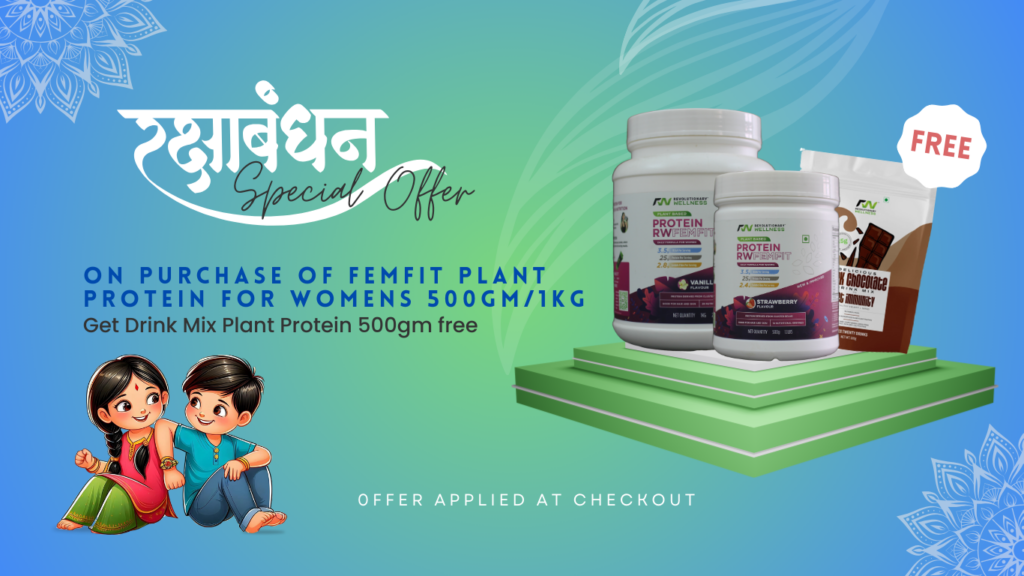Plant Protein Powders are the newest trend in the fitness block. They have stepped up as a worthy alternative for animal-protein powders. This has eased the situation for those with lactose intolerance or allergic reactions to animal products but has body goals. The effect of plant-protein powder is quite similar or sometimes better in the longer run.
A 2015 research study published in the Journal of the International Society of Sports Nutrition compared the effect of pea protein v/s whey protein on muscle thickness. The results show that the increase in thickness is comparable with the intake of either protein powders.
Irrespective of producing almost the same result, plant protein powders have an edge over animal ones. The most important difference is that plant-protein is devoid of all the unwanted bacteria that are present in animal protein. They have a considerable ill-impact effect on the human body in the long run.
The category of plant-protein is quite exhaustive. You are sure to get overwhelmed by seeing the number of options you have. In such a situation, it is hard to choose one as per your liking. Here is a rundown of six main things that you must consider before buying a plant-based protein powder.
- Does it have all the essential amino acids? The first thing to consider when buying plant-based protein powder is whether or not it is a complete protein powder. Complete protein powder will be an amalgamation of nine essential amino acids, namely, histidine, isoleucine, leucine, lysine, methionine, phenylalanine, threonine, tryptophan, and valine. Our body is incapable of producing these on its own. After intake, our body goes through a definite process that combines these proteins to use it for vital functions. These functions include assisting the body in muscle growth and repairing. One shortcoming of plant-based proteins is that most of them do not contain all the nine essential amino acids. To combat this issue, you can choose a blend of plant-proteins. For example, a combination of pea protein and brown rice will have better results than consuming either one of them individually.
- Does it have the standard quantity of protein? According to the Institute of Medicine (IOM), recommended protein intake by individuals per day must be 0.8 grams per kilogram of your weight. The IOM also suggests that the average sedentary woman must consume 46 grams of protein per day, whereas the average sedentary man must consume 56 grams of protein per day. So, when you research what plant-protein you want, you should keep these standard requirements in mind.
- What is the source of your plant-based protein? One of the most important considerations while purchasing a plant-protein is knowing the source that it is coming from. There are few most popular sources for plant-based protein. These include cluster beans, soy, pea, brown rice, and hemp. Cluster Beans- Popularly known as guar in India is a good source of protein with a full amino acid profile. This protein is easy to digest and doesn’t require to be blended with other sources. Soy Protein- The trendiest in the list of plant-protein, soy protein helps in reducing the ill-effects of cholesterol and even menopause for some women. The bones weakened by osteoporosis can also be strengthened using this protein as it builds bone mass. Brown Rice Protein- Brown rice protein comes 100% from plants and is the best alternative for vegetarians. It is gluten-free and free from dairy products. Hemp Protein- Also a 100% plant-based protein, hemp is a potent source of omega-3 fatty acids. Pea Protein- Pea protein falls on the economical side of the plant-protein radar. You can easily digest this protein. It is also hypo-allergic. So, you can opt for the source that you’re comfortable with. For example, if you want to cut down on soy for some time, then you can look for other options.
- What flavor of plant-protein do you want? Plant-protein comes in three common flavors, including vanilla, chocolate, and unflavoured. So, when you opt for a protein powder of your choice, let it soothe your taste buds. However, ensure that it does not have crazy amounts of sugar in it. You can also naturally add flavor to your protein powder by mixing it with fruits or peanut butter. This not only serves the dietary requirements but also leaves an amazing after taste.
- What is the quantity of sugar in the plant protein powder? Sugar is a part of every protein powder, but the quantity matters. Small doses of sugar are not harmful, but excess sugar only adds to the number of calories, without providing any nutritional benefits. The International Heart Association suggests the amount of sugar that is consumed by people on an average. For the majority of the women, calories from sugar are not more than 100. And for men, it’s 150. So, be mindful of not intaking excessive calories from sugar.
- Does that plant protein powder have side effects? Once you know which type of protein you want, you need to select a brand for the same. Now, this can be very tricky because a lot of them operate on deceptive claims. You need to check the scientific backing of the brand along with the ingredients they use. You also must check that the genetics of the ingredients aren’t altered and they are non-GMO. Besides, whether or not they are organic is also an important consideration. Some brands use other variables in place of organic ingredients. Also, check if a medical professional is a part of the team that has made the formula of the product. Finally, look for reviews.
Conclusion
The protein market has always been overwhelming for fitness enthusiasts. With the introduction of plant-protein in the market, the confusion has further increased. So, you need to have a clear idea about what you want your plant-protein to do and what should be its source and the like. While other specifications may vary, one thing that remains common is wanting to get hands-on with the most credible brand. This can be quite tricky since marketing can many times prove deceptive. For this reason, conduct thorough research on the brand backing, whether the claims are scientific or not, and how have users reviewed the product.

